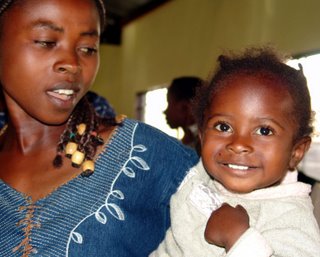
Children whose mothers are clinically depressed often have psychological problems that can last for years. But researchers have not known how children fare after their mothers' depression is treated. Now a new study by researchers at Columbia University has found that helping mothers can alleviate rates of anxiety, depression and seriously disruptive behavior in their children.
The Method Researchers at 19 clinics around the country studied 151 mother-child pairs; the mothers were enrolled in a major federally funded study of depression treatments. Women ranged in age from 25 to 60; many were of low or moderate income and all took a single antidepressant, usually Celexa. Their children ranged from 7 to 17 years old; 37 had a psychiatric diagnosis at the time the study began.
After three months, one-third of the mothers had improved and showed no signs of clinical depression. Their children, who received no special treatment, also improved as their mothers were treated. But in the group of mothers who did not get better, 17 percent of children who did not have a psychiatric diagnosis at the outset acquired one after three months.
What It Means The researchers, led by Myrna Weissman, an expert in maternal depression, caution that their study was not designed to conclusively demonstrate cause and effect, although it strongly suggests such a relationship.
"Maternal remission seems to have initiated a virtuous cycle," they write, in which "mothers and children positively influenced each other." The study was published in the Journal of the American Medical Association.
By Sandra G. Boodman
Scource: The Wahington Post

No comments:
Post a Comment